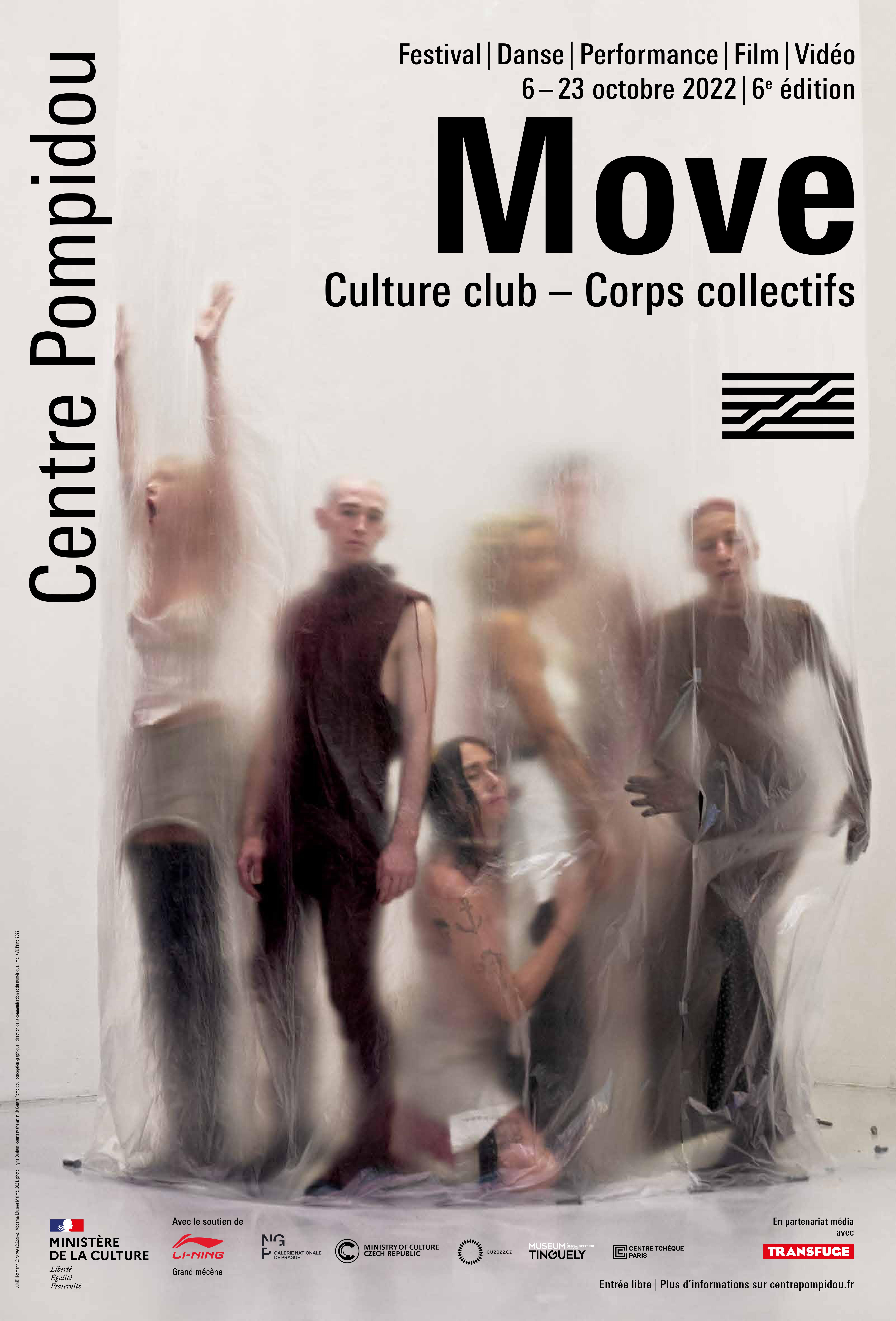To mark the French and then Czech presidency of the Council of the European Union, the Centre Pompidou and the National Gallery Prague have joined forces to propose a special edition of the MOVE festival showcasing the Czech scene.
Like the individual body, the collective body has been impacted by the pandemic and the social distancing measures it imposed. Our view of bodies existing together in a single space has changed and the beauty, strength and energy they develop now seem all the more significant. In addition, the divide between those who call for total individual freedom and those who seek a collective body more than ever representative of a truly safe space has become more pronounced.
The collective body can be contemplated through fascinating shows such as those by Lukáš Hofmann and Esben Weile Kjaer, or considered a community space in which to mingle, gather and build relationships, such as in Tarek Lakhrissi’s performances centred around the reading of poetry. At the heart of many of the works presented is the attempt to go beyond individuality, the complexity of today’s world being too much for the concept of individual freedom as a power to act, and requiring collective action.
Move also offers a critique of the productive body. Cally Spooner focuses on the unproductive time of bodies with a performance about rehearsal for a work that will ultimately take the form of an opera. Julia Gryboś and Barbora Zentková offer a similar critique by focusing on the collective fatigue inherent in the constant demand for performance. Marie Tučková, whose work draws on eco-feminism, thinks up new representations of the female body. Daniela and Linda Dostálková invent a body that seems to multiply into an avatar oscillating between the grotesque and the legendary while redesigning our relationship with non-human.
Like the individual body, the collective body has been impacted by the pandemic and the social distancing measures it imposed. Our view of bodies existing together in a single space has changed and the beauty, strength and energy they develop now seem all the more significant. In addition, the divide between those who call for total individual freedom and those who seek a collective body more than ever representative of a truly safe space has become more pronounced.
The collective body can be contemplated through fascinating shows such as those by Lukáš Hofmann and Esben Weile Kjaer, or considered a community space in which to mingle, gather and build relationships, such as in Tarek Lakhrissi’s performances centred around the reading of poetry. At the heart of many of the works presented is the attempt to go beyond individuality, the complexity of today’s world being too much for the concept of individual freedom as a power to act, and requiring collective action.
Move also offers a critique of the productive body. Cally Spooner focuses on the unproductive time of bodies with a performance about rehearsal for a work that will ultimately take the form of an opera. Julia Gryboś and Barbora Zentková offer a similar critique by focusing on the collective fatigue inherent in the constant demand for performance. Marie Tučková, whose work draws on eco-feminism, thinks up new representations of the female body. Daniela and Linda Dostálková invent a body that seems to multiply into an avatar oscillating between the grotesque and the legendary while redesigning our relationship with non-human.
The exhibition Culture Club – Collective Bodies will take place at the Center Pompidou in Paris from October 6 to October 23, 2022. The curator and author of the concept is Caroline Ferreira from the Center Pompidou. Michal Novotný, director of the Collection of Modern and Contemporary Art, is collaborating on behalf of the National Gallery Prague.




